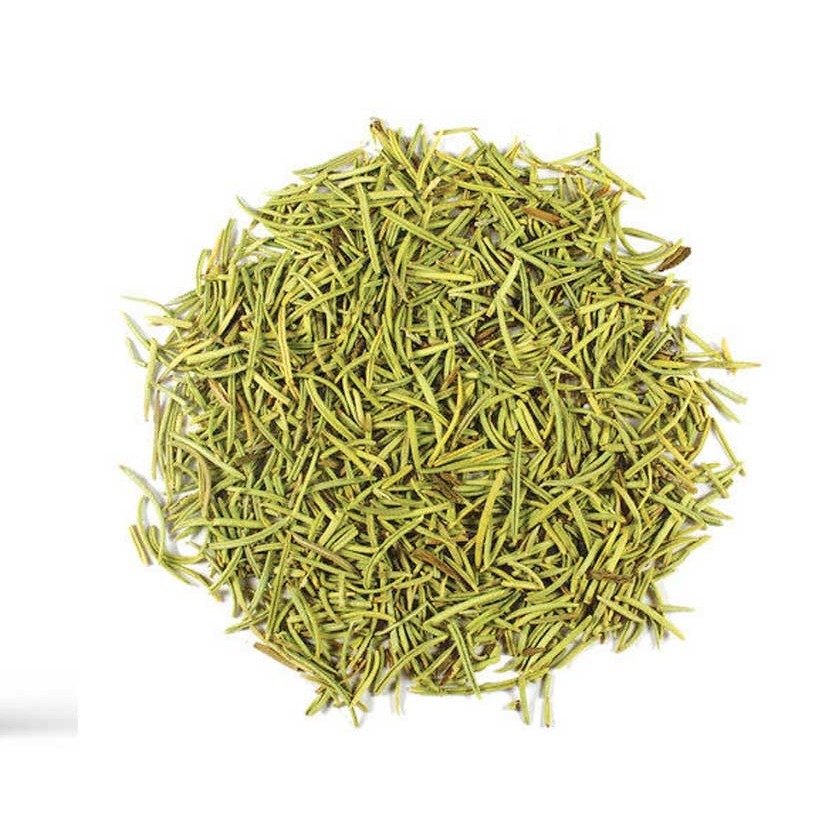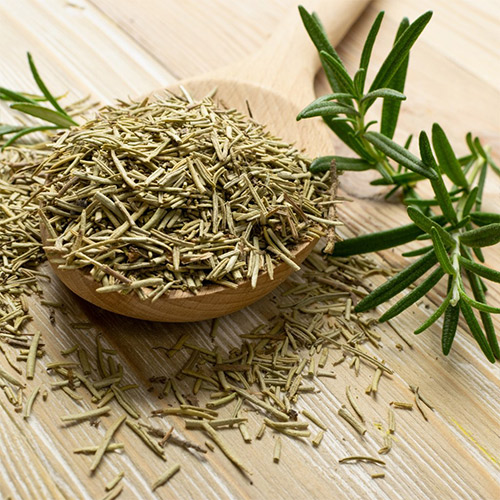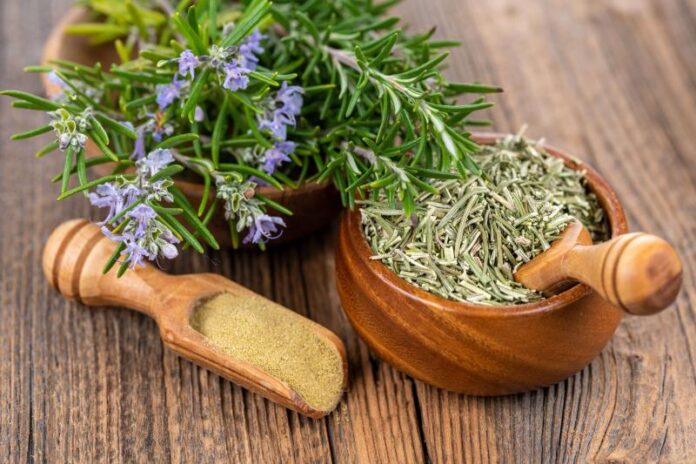INTRODUCTION:
Rosemary (Salvia rosmarinus) is an aromatic evergreen herb native to the Mediterranean region. Known for its needle-like leaves and distinctive, piney fragrance, rosemary has been used for centuries in culinary, medicinal, and ornamental applications. The leaves are rich in essential oils, antioxidants, and bioactive compounds that contribute to their therapeutic properties.In cooking, rosemary leaves are popular for flavoring meats, stews, breads, and roasted vegetables. Medicinally, they have been traditionally used to improve digestion, enhance memory, and relieve muscle pain. Due to their strong aroma and preservative qualities, rosemary leaves are also used in cosmetics and natural cleaning products.

English: Rosemary
Latin: Salvia rosmarinus (formerly Rosmarinus officinalis)
Arabic: إكليل الجبل (Iklil al-jabal)
Hindi: रोज़मेरी (Rozmeri)
Bengali: রোজমেরি (Rojmeri)
Turkish: Biberiye
Greek: Δεντρολίβανο (Dentrolívano)
Tamil: ரோஸ்மெரி (Rōsmery)
Telugu: రోజ్మెరీ (Rōjmeri)
Urdu: روزمیری (Rozmary)
Persian (Farsi): رزماری (Razmari)
HEALTH BENEFITS:

Boosts memory and concentration:
Rosemary has a long-standing association with memory enhancement, and some studies show it can improve memory recall.
Reduces stress:
Inhaling rosemary scent may help lower cortisol levels, which can reduce stress and improve focus.
Rich in antioxidants:
The herb is packed with antioxidants that help protect your body from free radical damage.
Reduces inflammation:
Rosemary’s anti-inflammatory properties can help create a calmer internal environment and support immune function.
Aids digestion:
It can stimulate the secretion of digestive juices and has been used to help with indigestion and gas.
Improves circulation:
Rosemary can increase blood flow, which is beneficial for both the scalp and overall circulation.
Supports liver and gallbladder:
It may help stimulate the liver and gallbladder.
Acts as a diuretic:
It can help the body eliminate excess water by stimulating the urinary system.
Promotes hair growth:
Applying rosemary to the scalp may increase blood circulation, which helps hair follicles grow.
Supports skin health:
It can help protect skin from sun damage, improve its suppleness by boosting collagen, and balance oil production. Its astringent properties may also help clear pores.
Pain relief:
Its anti-inflammatory and antispasmodic properties may help reduce pain and muscle spasms.
Immune support:
The antioxidant and anti-inflammatory compounds support the immune system.
Blood sugar management:
Research suggests it may improve insulin sensitivity and reduce inflammation, which are important for diabetes management.
SIDE EFFECTS:

Allergic Reactions:
Some people may experience skin irritation, itching, rashes, or difficulty breathing.
Gastrointestinal Issues:
Ingesting large amounts can lead to nausea, vomiting, stomach cramps, or upset stomach.
Increased Sun Sensitivity:
Large doses of rosemary can make your skin more sensitive to sunlight, leading to redness and sunburn.
Blood Clotting and Bleeding Risk:
Rosemary may slow blood clotting, increasing the risk of bleeding, especially for those on blood thinners or with bleeding disorders.
Blood Pressure Changes:
Rosemary might lower blood pressure, which could be a concern for people with high blood pressure or hypotension.
HOW TO USE:
Culinary Uses
Fresh or dried leaves can be used to flavor:
Meats (especially lamb, chicken, pork)
Roasted vegetables (like potatoes, carrots)
Soups, stews, and sauces
Bread (e.g., focaccia)

Infuse oils or butter:
Add rosemary to olive oil or melted butter for a flavorful cooking base.
Herbal tea:
Steep a few fresh sprigs or 1 tsp of dried rosemary in hot water for 5–10 minutes.
Rosemary tea:
Helps with digestion, headaches, and fatigue.
Steam inhalation:
Add rosemary to boiling water and inhale the steam to relieve congestion.
Hair care:
Boil rosemary in water, let it cool, and use it as a final hair rinse to promote growth and shine.
Massage oil:
Mix rosemary essential oil with a carrier oil for muscle pain relief.
Air freshener:
Simmer rosemary with citrus peels and cinnamon sticks for a natural scent.
Sachets:
Dried rosemary can be placed in cloth bags for closets or drawers to repel insects.
Facial steam:
Add rosemary to hot water and steam your face to cleanse pores.
Bath soak:
Add rosemary to a warm bath for relaxation and skin benefits.
Gardening & Pest Control
Companion planting: Plant rosemary near beans, cabbage, or carrots to repel pests.
Natural repellent:
Boil rosemary leaves and spray the cooled water on plants to deter insects.
PRECAUTIONS:
Don’t use a lot if you’re pregnant.
Stop if you feel itchy or get a rash.
Don’t use if you have seizures.
Ask a doctor if you take medicine.




